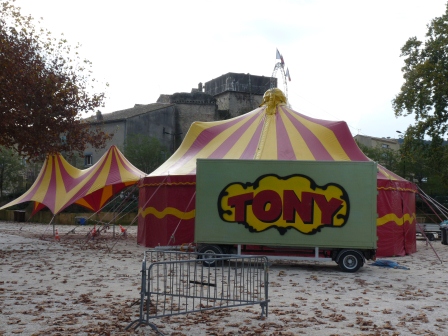Here are some common items that we’ve noticed about the 10 European countries we’ve been to.
- There is an obvious sense of history here. Public buildings and churches can be hundreds or even a thousand years old. Families often trace their roots for hundreds of years and may live in a house that has been handed down for many generations.
- Generally people dress better than those in Vancouver, and definitely better than we do in our travel clothes. Women are willing to sacrifice for fashion (e.g. wearing high heels on cobblestoned streets).
- There is a greater focus on food. Europeans purchase higher quality fresh ingredients. Most cities have morning fruit and vegetable markets several times a week where the freshest ingredients can be purchased, the largest typically being on Saturday morning.
- Bread is the main staple. Always fresh and delicious it is heavy and darker in Northern and Eastern Europe (e.g. Germany, Czech Republic) and lighter in the South and West (Italy and France).
- Beer and wine are cheap. They are often cheaper than soda pop (bad for someone with a Diet Coke addiction) and bottled water, which makes it a tough decision to drink anything else.
- Pork rules! Unless you’re Muslim or Jewish, you’re going to eat a lot of pork here. Far more popular than beef and as common as chicken.
- Europeans don’t refrigerate their eggs. It is somewhat disconcerting to see huge stacks of eggs sitting in the supermarket aisle. When they get them home, people store their eggs on the counter or in the pantry, not in the fridge as we do in Canada.
- Although America is one of the most religious countries in the world, Europe seems even more so, perhaps because there are impressive churches everywhere. The most religious countries in Europe are in the East (e.g. Turkey, Romania, Poland) and in the Mediterranean (e.g. Cyprus, Italy, Greece).
- The Catholic Church is ubiquitous. There are grand Catholic churches in every village, town, and city, becoming larger and more impressive with the size of the city.
- People here ride bicycles a lot more than we do. It is done much more as a means of transportation than recreation. Most people don’t ride fancy road or mountain bikes, just basic bicycles with simple or no gearing, front and rear lights, a comfortable seat, and perhaps a basket.
- More people smoke than in Vancouver.
- Homes are smaller. It is very common for people to live in apartments or shared accommodation of some sort. Owning a house (especially one with a yard) is less common than in Canada.
- Buildings, including houses, are made of brick, block, or stone. As a result, walls and door frames are thick. We haven’t seen any wood framed houses which are the norm in British Columbia.
- Most large cities have some pedestrian only streets where locals and tourists flock. They are typically full of retail shops and restaurants and don’t have the run-down feeling of Granville street, Vancouver’s singular pedestrian-only street.
- Little dogs are very popular. For the conspicuous consumption types (like the ‘schickimickies’ in Munich), a small terrier, dachshund, or Chihuahua seems to be an essential fashion accessory. In case you’re wondering, the word ‘schickimicki’ is of German origin and is used to describe the ‘in crowd’, very stylish, superficial, chic, and pretentious.
- Europe has a graffiti problem. In every country we’ve been to graffiti is common, but it was most prevalent in the former East Germany and Eastern Europe. In a few places it was particularly bad (e.g. on the inside of trains, on historical buildings, etc.)
- There seem to be a lot of small circuses (mostly extinct in Canada) and traveling amusement parks here. We see them advertised everywhere, and have run across them a few times (in Pont du Gard, Arles, and even in Monaco).
- Europeans use the 24-hour clock. Times are often quoted to us as, “17 hours”, by which they mean 5 PM.
- Virtually every European capital has a very fancy shopping district, much larger and higher-end than Vancouver. If you’ve got some serious money to spend, head for Europe (or the Middle East).
- Most pharmacies tend to be boutique shops (no mega chains like Shoppers Drug Mart) with well-dressed staff to help you choose cosmetics and hair products. They often don’t even sell drugs, not even aspirin when I have a hangover.
- Europe has a lot of co-ed bathrooms. They’re not the standard, but we encounter them frequently. They take some getting used to. I’m not accustomed to hearing the girl pee in the stall next to me, nor feeling the necessity to regulate my body functions so as not to shock her.
- Mushrooms seem to be popular. Perhaps it’s just mushroom season here, but we see them more frequently and in a much greater variety than at home. There are mushroom sellers in the markets with whole tables of different kinds of fresh and dried mushrooms.
- Most countries have a Value Added Tax (VAT) of some sort, usually much higher than the sales taxes we pay in Canada, but it’s always included in the price. The price you see is the price you pay. In principle I don’t approve of hidden taxes, but I must admit that I like the simplicity of it.
- Europe has the most stylish and lavish McDonald’s I’ve ever seen. In Bratislava (Slovakia) and throughout Italy they have very modern styling and décor. The one in downtown Madrid has granite floors throughout. I think they are trying to compete with the coffee shops that have a long tradition in Europe.
- It is rumoured that body odour is a more common problem in Europe because people don’t traditionally bathe daily. Although we have noticed this occasionally, it has only been slightly more frequently than we might at home. However, traveling by RV, we also haven’t been bathing daily either, so perhaps we can’t distinguish their smells over our own!


